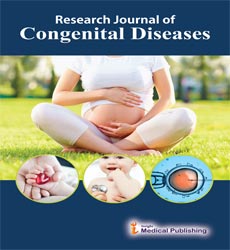The effect of cannabis use on oncological outcomes in ovarian cancer patients treated with PARP inhibitors
Abstract
Introduction: Ovarian cancer (OC) is the second most common gynecologic malignancy and the most common cause of gynecologic cancer death worldwide. Since 2014 Poly (ADP-ribose) polymerase (PARP) inhibitors (PARPi) play a pivotal role in the management of OC in the adjuvant and recurrence setting. In recent years the rise in access and availability of medical cannabis among cancer patients has resulted in its’ integration as a mainstay of supportive care. Pre-clinical studies demonstrated immunomodulatory and epigenetic properties of cannabis. Therefore, cannabis may induce epigenetic modifications, potentially interfering with the beneficial clinical effect of PARPi therapy. We aimed to study whether cannabis affect oncological outcomes among OC patients treated with PARPi in the adjuvant and recurrent setting.
Methods: We conducted a retrospective analysis of 93 OC consecutive patients with germline, somatic or wild type (WT) BRCA mutation, treated at the Tel Aviv Sourasky Medical Center (TASMC) with PARPi. Majority of patients received PARPi for recurrent disease n=68 39 (73.11%). Cannabis was administered either by smoking, nebulizer, oil or combination. We compared oncological outcomes of patient treated with maintenance PARPi and patients treated with maintenance PARPi and cannabis. We evaluated progression free survival (PFS), overall survival (OS) and duration of response on maintenance PARPi’s therapy (DOR).
Results: Among 93 patients treated with PARPi, 29 (31.18%) women used simultaneously cannabis during the same period (cannabis group). Median PFS was 21.03 months in the PARPi group, and 20.04 months in the cannabis group (P=.77). However, median OS in patients receiving PARPi in the recurrent setting was longer in the cannabis group compared to PARPi only group 129.28 Vs 99.02 months, respectively (P=.03). The median time on PARPi therapy was similar in both groups, 9.5 months in the PARPi only group and 12.11 months in the cannabis group (P=.894).
Conclusion: The use of supportive cannabis during PARPi treatment did not compromise OS, PFS or DOR on maintenence PARPi therapy. Considering the limitations of this work, further larger prospective clinical studies are warrented.
Keywords: Ovarian cancer, BRCA, PARP inhibitors, cannabis, drug interactions
Open Access Journals
- Aquaculture & Veterinary Science
- Chemistry & Chemical Sciences
- Clinical Sciences
- Engineering
- General Science
- Genetics & Molecular Biology
- Health Care & Nursing
- Immunology & Microbiology
- Materials Science
- Mathematics & Physics
- Medical Sciences
- Neurology & Psychiatry
- Oncology & Cancer Science
- Pharmaceutical Sciences
